“Quan ho is not just about singing. Before singing quan ho, you must learn to be a quan ho person,” said Duong Duc Thang, Vice Director of the Hoai Trung Quan ho Club, at the beginning of the teaching session for children from two original quan ho villages of Bac Ninh province, Hoai Trung (Lien Bao commune) and Dong Moi (Yen Phong commune).
At the Quan Ho Exhibition Room of the Hoai Trung Quan Ho Club, that evening class did not begin with folk songs but with stories of old customs and etiquette. In the past, Hoai Trung village had restored many traditional rituals of Quan Ho people. Those communication ways were recreated by Thang, from the men and women lining up neatly to greet each other at the village gate, to each polite greeting.
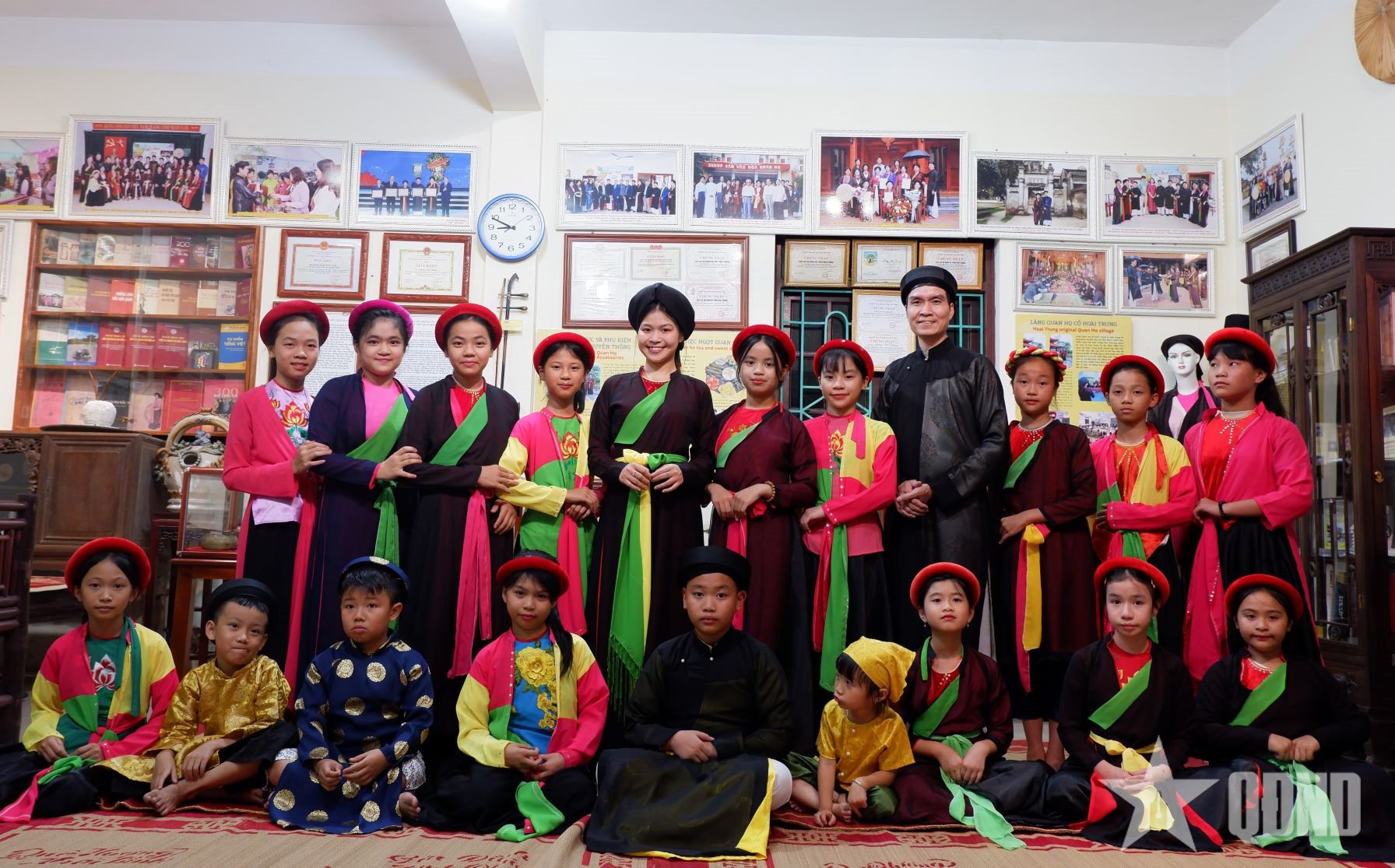 |
Generations of Hoai Trung Quan Ho Club in a meeting. |
"- Yes, we brothers and sisters say hello to our second, third, fourth and fifth sisters!"
- Yes, we also say hello to our second, third, fourth and fifth brothers!
No one calls themselves "brother" or "sister". Quan Ho singers only humbly call themselves "chung em". These formal titles are used to honor their fellow singers.
If you want to talk to a male or female, you have to be tactful, you have to say "yes" and "no" five times. For example, if you want to open a conversation, you have to say: "Yes, we would like to say something..."; and the other side will reply: "Yes, we would like to say something less...". That response is not just a ritual but an expression of respect for each other, cherishing each other as good friends," Mr. Thang recounted the principles of response in Quan Ho activities.
Quan ho etiquette permeates every small detail of life. For example, at a quan ho party, the host does not sit at the same table as the guests to avoid causing embarrassment. Guests also never ask for more food; if there is a shortage, the host must realize it and proactively add more, but usually there is never a shortage because "quan ho only eats for the sake of food and flowers".
Meritorious Artist Ngo Thi Nhi (one of the 6 typical Quan Ho artists awarded the title “Living Humanity Treasure”), once at a party in a friend’s village, saw the host preparing the feast but missing the toothpicks. She did not say it directly but only gently complimented: “I don’t see where the brooms are sweeping the altars of my second and third brothers, but the altars are spotless.” The Quan Ho host immediately understood after hearing it. According to Thang, it is this subtle reminder that is the beauty and depth of Quan Ho; subtle, delicate, yet still maintaining mutual respect. The stories Thang told, from the elderly to the children, all listened attentively to every word, as if afraid of losing a “piece” of precious culture.
Hoai Trung is one of the original quan ho villages that still preserves traditional customs. Not only when playing quan ho, but also in daily life, people here still maintain gentle and polite ways of addressing and behaving. Greetings and politeness in dealing with people are taught to children right from these classes. At the Hoai Trung quan ho club, the young men and women may not be able to sing well, but etiquette must be put first. Because the root of quan ho is emotional communication, how to do it skillfully and affectionately; the character of quan ho people must be humble and polite...
The lesson ended with a simple Quan Ho song, but what the children took home was a profound lesson on how to live: being gentle, appreciating each other and knowing how to maintain kindness in the way they speak and treat each other. Those seemingly trivial things, if not told, if not passed on in such a lesson, may fade over the years.
Bui Ngoc Hoa (20 years old), born and raised in Hoai Trung village, is now honored to join Mr. Thang in teaching. Hoa shared: “When I was young, I listened to the songs first and then understood them. Now that I have learned more about Quan Ho culture, I see that each Quan Ho song is not just a melody but also contains a philosophy of life. If you only learn to sing without understanding Quan Ho culture, it is like not studying at all or just learning by rote.”
As one of the first seven members of the Ha Bac Quan Ho Troupe (now Bac Ninh Quan Ho Folk Song Theatre), Meritorious Artist Minh Phuc also expressed the importance of preserving the traditions and customs of Quan Ho. Therefore, Meritorious Artist Minh Phuc supports and encourages current Quan Ho clubs to teach Quan Ho culture to the younger generation.
She said that in the first years of traveling with the troupe to ancient villages to collect and learn singing from the artists, what impressed her deeply was not only the smooth singing but also the way the artists taught the lifestyle and cultural behavior in a very delicate way. “Quan ho is a very elaborate profession. A person who wants to play quan ho must first learn how to walk, talk, and dress properly,” Meritorious Artist Minh Phuc emphasized.
Article and photos: PHAM THU
* Please visit the section to see related news and articles.
Source: https://www.qdnd.vn/van-hoa/doi-song/giu-gin-nen-nep-le-nghia-quan-ho-thoi-nay-847569







![[Photo] Binh Trieu 1 Bridge has been completed, raised by 1.1m, and will open to traffic at the end of November.](https://vphoto.vietnam.vn/thumb/1200x675/vietnam/resource/IMAGE/2025/10/2/a6549e2a3b5848a1ba76a1ded6141fae)


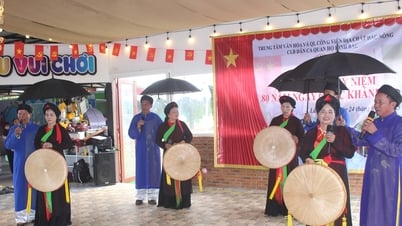

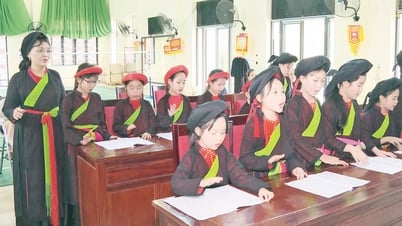



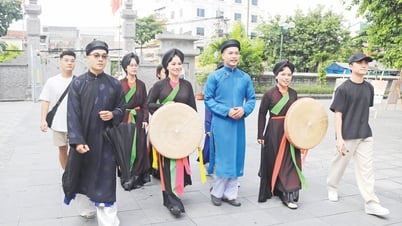


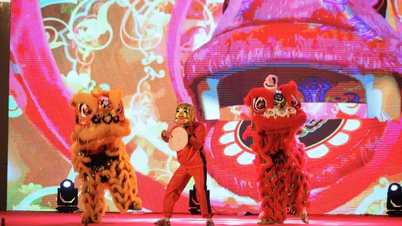

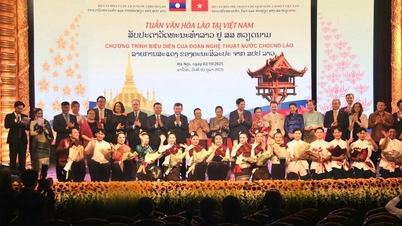

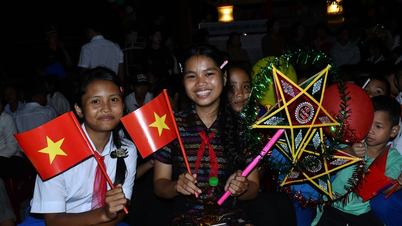
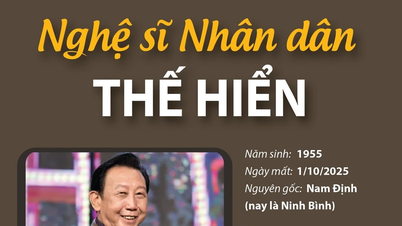


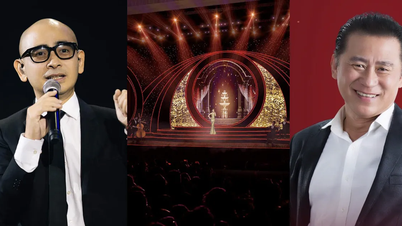




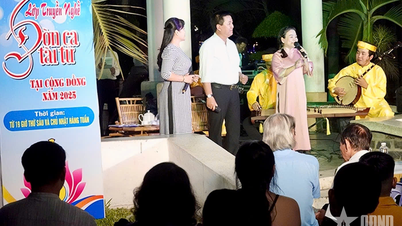
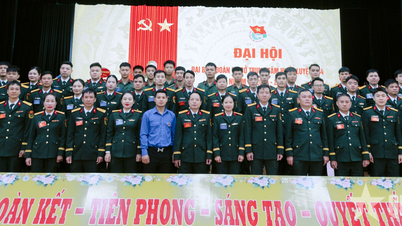
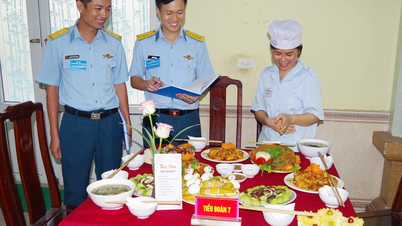
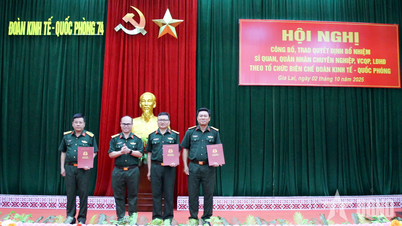
















































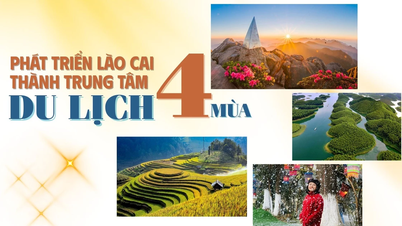

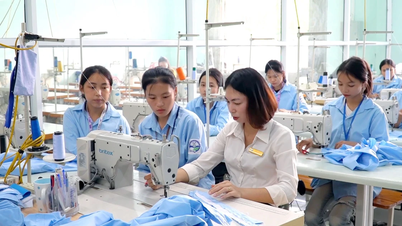


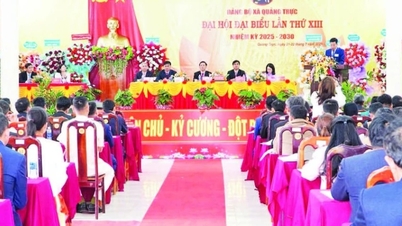
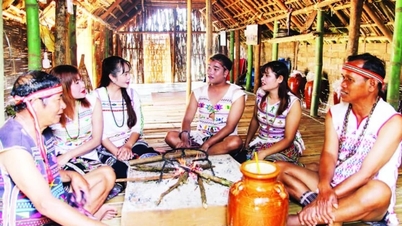













Comment (0)